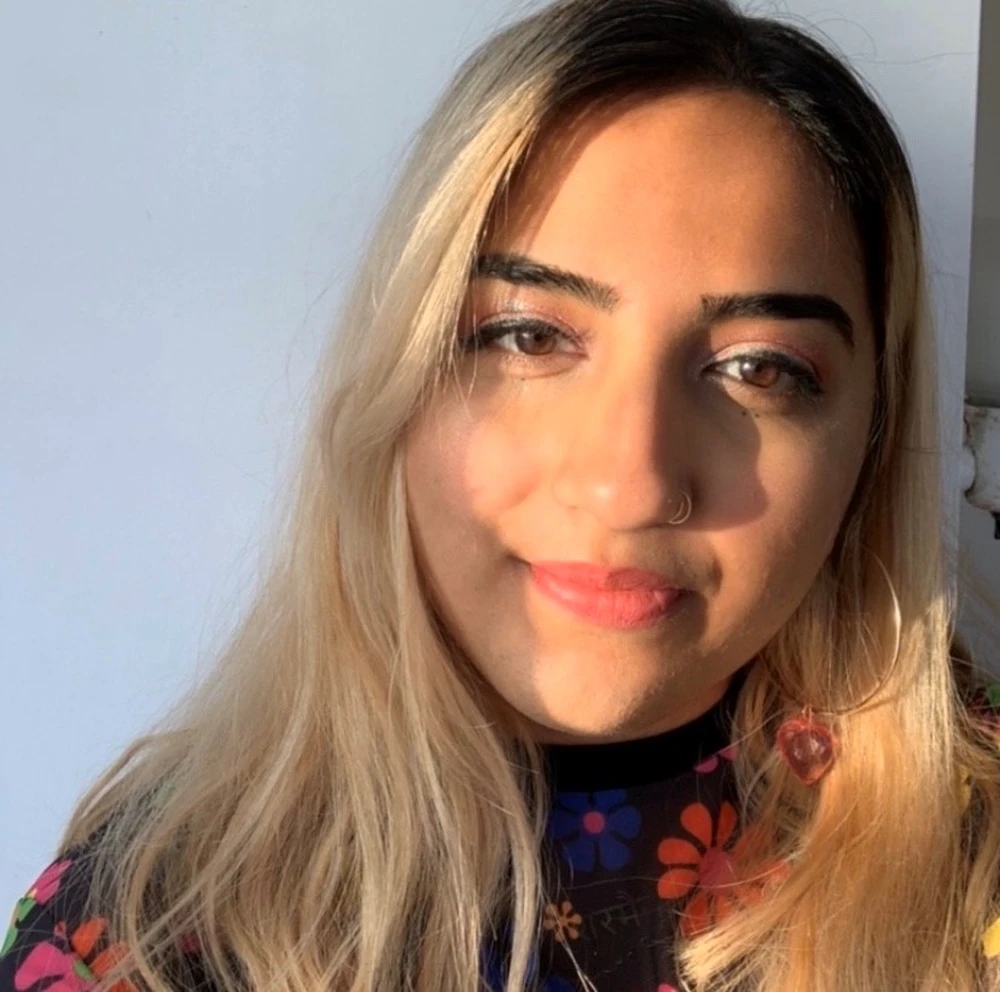
Rubab Hyder is a History major and student in Asian American Studies. She has spent several semesters conducting independent study sessions with AAS professors Dr. Fiona Ngo and Dr. Junaid Rana, and has also worked as a research assistant with Dr. Rana. I sat down with her for a quick interview to ask about her experience in Asian American Studies and her plans for after graduation.
How did you get your start in Asian American Studies, and what made you want to pursue further study and research in AAS?
My start into Asian American Studies began when I first took a class entitled "Immigrant Women and Labor" with Professor Paik. The class influenced how I began to imagine my future and my own surroundings. Every week we read engaging articles and books about gendered labor. I honestly think a lot of my curiosity was invigorated in that class, and it shaped my work as an organizer on campus.
What kind of organizing work have you been doing? Do you intend to continue after graduating?
Some organizing work I have done is for United Muslim Minority Advocates (UMMA). We host a lot of events and teach ins to educate ourselves about different issues concerning our community. I do intend to do this work after I graduate, probably for the rest of my life. To quote Angela Davis, freedom is a constant struggle!
Tell me about the research you’ve been working on with Dr. Rana.
Professor Rana, Eman and I have been working on a project about the Pakistani anti-colonialist Dada Amir Haider. Originally I started with Professor Rana in January of 2019, working on transcribing interviews with Shakeela Hassan, the family doctor for Elijah Muhammad. It was an honor being a part of the process of learning midwestern Islamic oral histories and creating archives out of memories.
I hear you’ve also been working on an undergraduate honors thesis. What’s your topic, and why does it interest you?
My history thesis is about western women in the Indian anticolonial movement. I specifically examine American and German women in interwar Berlin and their practices of complicity or resistance to imperialism. It interests me because as someone who views solidarity as a constant terrain of struggle, I want to examine how practices of western feminism in the past have informed and shaped feminist struggles.
I know you recently traveled to Buffalo, NY to present at the Rustgi Undergraduate Conference on South Asia. What was your presentation about, and what did you take away from that experience? Have you done any other travel related to research or scholarship?
My presentation was about Berlin as an Indian anticolonial nexus point for radical organizing. I learned a lot about how the audience is critical in shaping the researcher's ideas and opinions. I got to meet Suraj Yengde, the keynote speaker and author of Caste Matters, who asked questions that forced me to think outside of the box. In terms of other travel, the History department grants and the Ying Fan Wu Memorial Scholarship allowed me to travel to Berlin over the summer of 2019. I was able to conduct oral interviews and archival research.
And finally, do you have any plans for after graduation?
After graduation I hope to organize with my community, work for a bit, and save some money for graduate school!